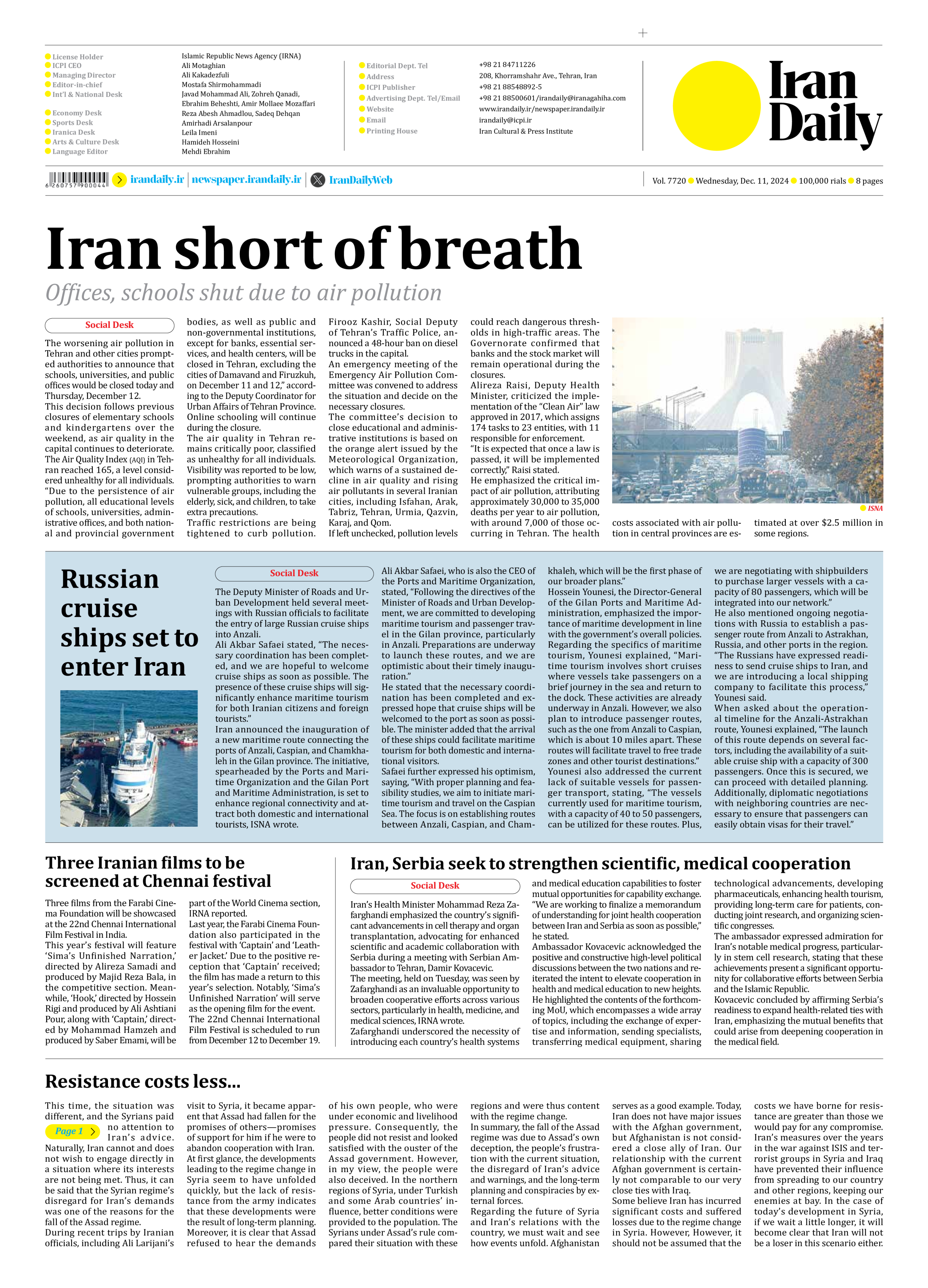
Iran short of breath
Offices, schools shut due to air pollution
The worsening air pollution in Tehran and other cities prompted authorities to announce that schools, universities, and public offices would be closed today and Thursday, December 12.
This decision follows previous closures of elementary schools and kindergartens over the weekend, as air quality in the capital continues to deteriorate. The Air Quality Index (AQI) in Tehran reached 165, a level considered unhealthy for all individuals.
“Due to the persistence of air pollution, all educational levels of schools, universities, administrative offices, and both national and provincial government bodies, as well as public and non-governmental institutions, except for banks, essential services, and health centers, will be closed in Tehran, excluding the cities of Damavand and Firuzkuh, on December 11 and 12,” according to the Deputy Coordinator for Urban Affairs of Tehran Province. Online schooling will continue during the closure.
The air quality in Tehran remains critically poor, classified as unhealthy for all individuals. Visibility was reported to be low, prompting authorities to warn vulnerable groups, including the elderly, sick, and children, to take extra precautions.
Traffic restrictions are being tightened to curb pollution. Firooz Kashir, Social Deputy of Tehran’s Traffic Police, announced a 48-hour ban on diesel trucks in the capital.
An emergency meeting of the Emergency Air Pollution Committee was convened to address the situation and decide on the necessary closures.
The committee’s decision to close educational and administrative institutions is based on the orange alert issued by the Meteorological Organization, which warns of a sustained decline in air quality and rising air pollutants in several Iranian cities, including Isfahan, Arak, Tabriz, Tehran, Urmia, Qazvin, Karaj, and Qom.
If left unchecked, pollution levels could reach dangerous thresholds in high-traffic areas. The Governorate confirmed that banks and the stock market will remain operational during the closures.
Alireza Raisi, Deputy Health Minister, criticized the implementation of the “Clean Air” law approved in 2017, which assigns 174 tasks to 23 entities, with 11 responsible for enforcement.
“It is expected that once a law is passed, it will be implemented correctly,” Raisi stated.
He emphasized the critical impact of air pollution, attributing approximately 30,000 to 35,000 deaths per year to air pollution, with around 7,000 of those occurring in Tehran. The health costs associated with air pollution in central provinces are estimated at over $2.5 million in some regions.







